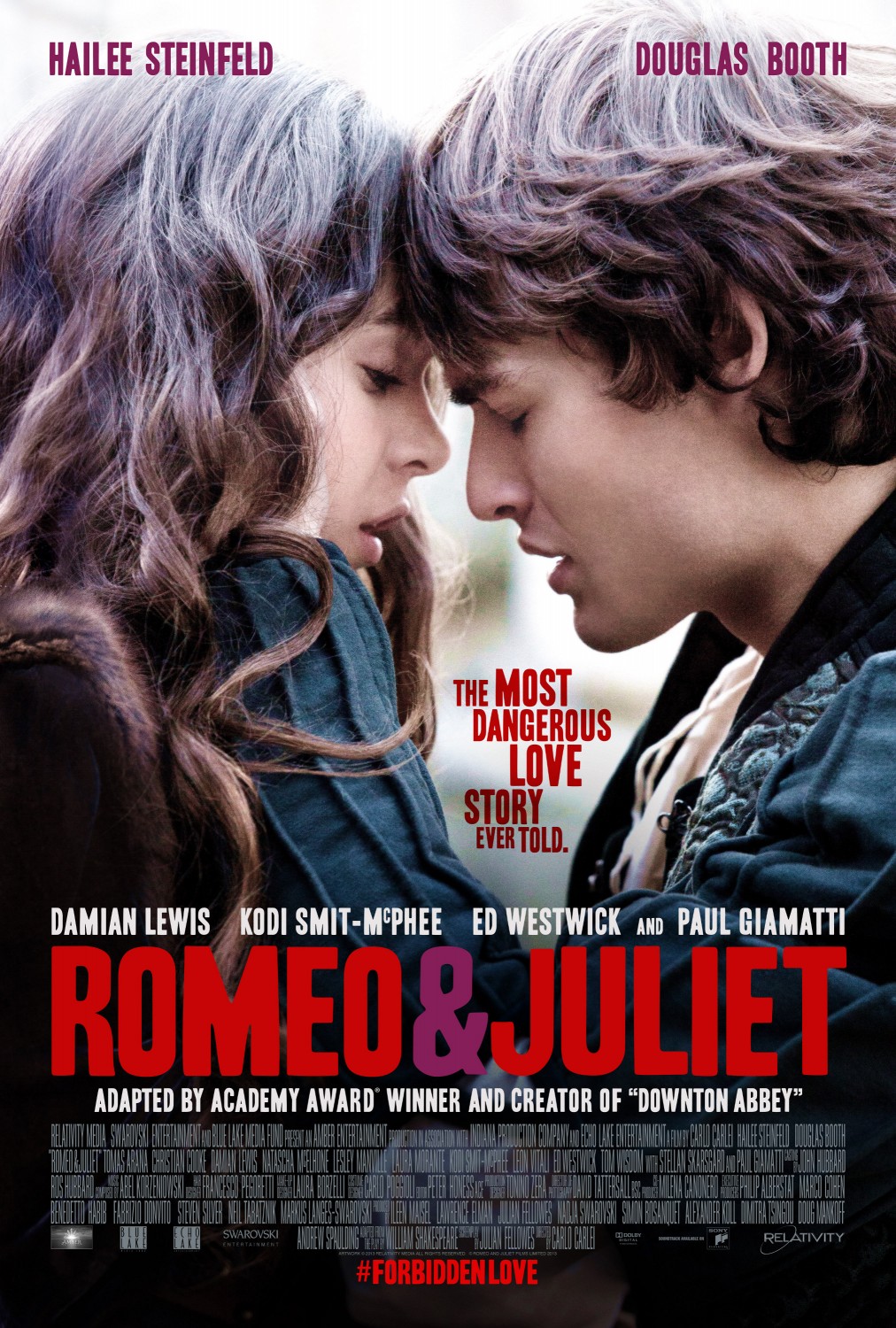Part of the pleasure of watching a staging or film adaptation of Shakespeare's work is seeing how actors and directors interpret the characters and their dialogue through performance and setting. While Shakespeare's plays are rooted in a historical context- directors have updated the setting while retaining the language. And most of the time it works. That's part of Shakespeare's greatness. His words can be spoken in any setting- his works are universal and the emotions of his characters still relevant to us. All that matters when you're adapting Shakespeare is retaining the language. It can be cut down but the words still have to be the same.
This is the fundamental flaw of director Carlo Carlei's 2013 film version of Romeo & Juliet. The language has been changed in this adaptation, with new lines added and certain passages simplified. This problem lies not with the director however. It's an issue with the screenplay by Julian Fellowes, the Oscar winning screenwriter of Robert Altman's Gosford Park (2001) and the creator of the TV series Downton Abbey. While I'm not up in arms about Fellowes' adaptation I don't think he did in his screenplay really adds anything or improves upon Shakespeare's text. In fact, it lessens the text and robs it of its poetry.
I can see changing Shakespeare's text if you were attempting to do a meta-critique/parody of Shakespeare but that's not what Fellowes or the film is doing. There's nothing clever or unique in how it approaches the language. It's essentially Fellowes attempting to "simplify" things for younger viewers or those not well versed in the Bard, while at the same time wanting to compete with Shakespeare, saying "I can sound like you and nobody will notice." While many probably didn't notice- I'm well read enough in Shakespeare that the changes and additions feel very jarring.
Another reason the text change is a bad decision is the classical approach director Carlei has taken to the material. This is not the hyper kinetic world of Baz Luhrmann's 1996 Romeo Juliet starring Leonardo DiCaprio and Claire Danes as the doomed lovers. If anything, this is closer to the spirit of Franco Zefferelli's 1968 version, which also took a classical, old school approach to the material. The classical setting, combined with these new lines, makes the play feel like a neutered and twisted version of itself.
There are good things about the film however. I do love that Carlei- instead of placing the story in an modern setting- created an unabashedly old fashioned take on the story. Hailee Steinfeld, who received an Oscar nomination for her role in the Coen Brothers' 2010 remake of the John Wayne classic True Grit, has a lovely presence as Juliet- and she and Douglas Booth as Romeo have decent chemistry. Paul Giamatti gives an enjoyable performance as Friar Laurence and the look of the film is very beautiful (the cinematographer is David Tattersall). Unfortunately, Romeo & Juliet doesn't leave the viewer with much to dwell on or cherish. It's sadly on the lower rung of Shakespearean film adaptations.

